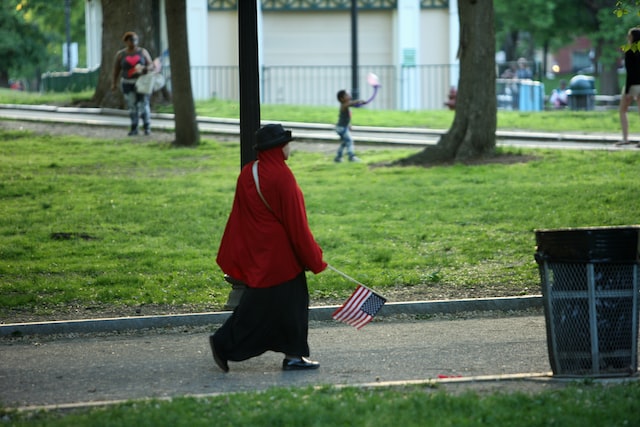
Something is very wrong at (with?) Duke University. Four years after the embarrassing Duke Lacrosse rape scandal in which 88 professors rushed to a guilty verdict with a public letter condemning both the players and community of rampant sexism and racism, the school has issued a new Sexual Conduct Policy that makes it nearly impossible for students to engage in healthy or pleasurable sex.
Two days ago Wendy Kaminer pointed out some very troubling provisions of the policy in an article for The Atlantic. As written, the policy would make much of the sex on campus de facto assault.
Advertisment
www craigslist com boston
Craigslist las vegas nv
Loveawake Los Angeles
Craigslist reno nv
Pa philadelphia
Craigslist pittsburgh pa
Craigslist buffalo new york
Orlando fl craigslist
Craigs list Raleigh nc
Craigslist kansas city mo
Duke’s new rules governing sexual misconduct and coercion are so vague, subjective, presumptive of guilt, and oblivious to the dynamics of consensual sexual relations that they pose a risk of prosecution even for students engaging in innocent foreplay.
Some specifics:
- “Real or perceived power differentials between individuals may create an unintentional atmosphere of coercion.”
- Perceived by whom?
- What is a real and recognizable power differential? Some have suggested this could refer to a varsity basketball player with a regular student. Professor and student? How about TA and student? Law school student and undergrad? Frat star and freshman girl hoping to pledge a sorority?
- Unintentional coercion may be inferred by the victim. If a woman is offended, she may validly claim coercion. This raises the question: What if a woman is propositioned by a guy she finds unattractive? Is that coercion? Then John Scheyer looks her way and she heads straight for his room. Is that not coercion?
- 2. “Consent is an affirmative decision to engage in mutually acceptable sexual activity given by clear actions and words, but relying solely on upon non-verbal communication can lead to miscommunication.”
- What constitutes clear actions and words? Can speech slurred by alcohol produce clear words? What about actions without words? A come hither look and stepping out of one’s jeans? How about a girl silently sliding her hands into his jeans?
- What about verbal communication that is not speech? How can you be sure whether a moan is an expression of desire or dread? Accompanying body language helps, but what if a moan is of the “I’m going to regret this in the morning, but what the hell” variety?
- Consensual sex can be engaged in with enthusiasm or reluctance. If emotions are muddled, how is clearly expressed consent even possible?
- “Duke University is committed to providing an environment free of personal affronts against individuals… “
- What constitutes a personal affront? Can a man feel affronted? What constitutes sexual assault on the part of a woman? If a drunken woman lifts up her shirt and throws herself at a guy and he isn’t interested, is her lewd behavior an affront? Or can she feel affronted by his disinterest?
- Since most sex on campus, and nearly all sexual assault occurs under the influence of alcohol, how will Duke address underage drinking to provide an environment free of personal affronts?
- Duke has served as the poster child for hookup culture on more than one occasion during the last several years. (See Rolling Stone, Laura Sessions Stepp and Tom Wolfe). What steps have been taken so far to address a student body wallowing in the bodily fluids of strangers?
- Consent is invalid if either party is intoxicated to any degree.
- That means that nearly all sex at Duke is de facto coerced and constitutes misconduct.

Cathy Young writes today in the Boston Globe about Duke’s Sexist Sexual Misconduct Policy:
Duke is back in the news with a campus policy that ostensibly seeks to prevent sexual assault — but, in fact, infantilizes women, redefines much consensual sex as potentially criminal, and does a grave disservice to both sexes.
Her concerns include the following in addition to those cited above:
- Women are not the sole judges of whether they have been assaulted. It is not uncommon for a woman to seek counseling without claiming rape, only to be told that they have been the victim of a criminal act. There are cases where women do need to understand that they have been raped, even if they know the person, and that they have every right to prosecute their claim. It is also not uncommon for the counselor to have a particular political ideology that involves coercing the student into claiming assault, regardless of her own doubts.
“Most insidiously, under the new Duke policy the “offender’’ may face sanctions even if the “victim’’ doesn’t think she is one. If a woman has a sexual encounter she regrets and tells a friend who decides she was coerced, the friend’s third-party report can trigger an investigation. And if she tells a dorm adviser or a women’s center staffer, they are obligated to report the incident.”
- In an ongoing sexual relationship, a woman who is “not in the mood,” but passively has sex anyway may be viewed as a rape victim.
“The man’s behavior may be inconsiderate. However, adult college students have no more of a right to be protected from such ordinary pressures in relationships than, say, from being cajoled into buying expensive gifts for their significant other.”
After the Duke Lacrosse debacle, one can only wonder who’s behind this ridiculous new policy. Kaminer is surprised:
Duke’s insensitivity to due process for students accused of sexual offenses is especially shameful, given the university’s complicity in the wrongful and malicious 2006 indictment of three lacrosse players (and public vilification of the team) for a rape that never occurred. The case cost Duke money as well as prestige, but university officials seem to regard this travesty as a mere public relations problem they have managed to solve.
She is not surprised, however, that the policy has been introduced by the Duke Women’s Center, and she clarifies the reason so few young women identify as feminist:
It’s not hard to understand why many college women who value individual liberty tend to disdain feminism. They’re often unaware of how much they have benefited from the rights and opportunities won by second wave feminism that flourished before they were born; but they’re exposed regularly to the dangerous excesses and idiocies of the feminist dogmas that help shape Duke’s sexual misconduct policy.
You may be interested to learn that in 2006 when the Duke 88 signed their letter condemning the lacrosse players and the Duke community, 72% of the professors in Women’s Studies signed it.
In contrast, the following departments had zero signers:
- Engineering
- Law
- Biology
- Anatomy
- Chemistry
- Computer Science
- Genetics
- Psychology
- Religion
- Economics
Indeed, 17 Economics professors sent a letter of support to the accused, welcoming them to enroll in their classes.
They’re baaaaack, and they haven’t learned a thing. I’ll let you draw your own conclusions about whether the inmates are running the asylum.
Update:
From the Duke Chronicle student newspaper:
Five incidents of “forcible sexual offenses” were reported on campus in 2007, according to the most-recent Clery Campus Security Report. But Duke officials and the National Institute of Justice suggest the real number of offenses may be much higher.
“The higher IQ, the more manipulative they are, the more cunning they are… imagine the sex offenders we have here at Duke-cream of the crop,” said Women’s Center Director Ada Gregory.